Leading figures of the Australian cosmetic medicine industry are calling for government crackdowns following the death in Sydney last Friday, September 1, of Jean Huang, 35, after undergoing a procedure for breast enhancement.
Jie Shao, 33 – who had been here for five days on a tourist visa and had no Australian medical qualifications – appeared in Sydney’s Central Local Court on August 31 charged with recklessly inflicting bodily harm and using a poison so as to endanger life.
The charges were upgraded this week to manslaughter.
In refusing bail last week, magistrate Sharon Freund said Shao had made admissions related to the administration of local anaesthetic (the intoxicating substances tramadol, an opioid pain medication, and lidocaine, a local anaesthetic) via a catheter and drip as well as an injection into Ms Huang’s chest, and breast fillers between 1.30-3.30pm on Wednesday, August 3o, despite not being a licensed medical practitioner in Australia.
The tragedy has galvanised the cosmetic medical community, which has already been agitating for more stringent controls for several years.
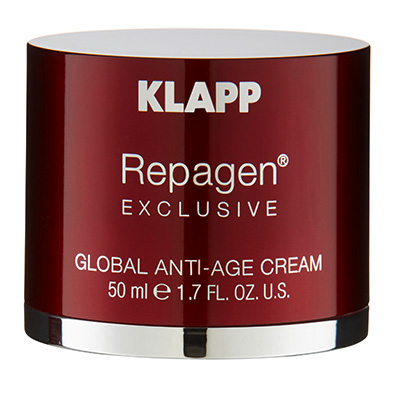
LEADING THE CHARGE
Highly respected Sydney cosmetic physicians Dr Naomi McCullum and Dr Cath Porter have, for instance, urged their sizeable Facebook audiences to support the Change.org petition REVIEW THE LEGISLATION FOR COSMETIC INJECTABLES:
This petition calls on the Australian Government and the Australian Health Practitioner Regulation Agency to review the legislation relating to the cosmetic medical industry.
This petition is in response to the recent death of Jean Huang, who was having breast filler performed in a beauty salon in Sydney.
It’s time that legislators do something to protect the public from unregistered and/or unregulated people working illegally in this industry.
Cosmetic medical procedures are not beauty treatments. They are medical treatments with the risks associated.
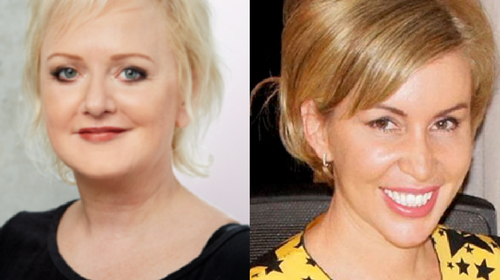
Cosmetic injectables gone wrong can cause anaphylactic reactions, blindness, skin necrosis and infections.
We are also opposed to the widespread and indiscriminate use of the terms medical, clinic, medi, specialist and health practitioner by unregulated, unregistered and uninsured people.
“Medical” relates to doctors and NOT to dentists, nurses and other health care or beauty industry workers.
In Australia currently, we have a farcical situation where Skype calls with medical practitioners are substituted for proper consultations, allowing nurses and others to administer potentially dangerous cosmetic injectables with dire consequences from beauty salons, hairdressers and other unsupervised premises.
The legislation needs to change to make sure that:
- The doctor dispensing/prescribing cosmetic injectables must have an in-person consultation with the patient, and be on the premises if a nurse acting on his/her behalf is injecting patients.
- Cosmetic injectables should not be given in non-medical settings where complications cannot be dealt with.
We urge the Australian government and [The Australian Health Practitioner Regulation Agency] AHPRA to change the legislation and stop putting patient health at risk.
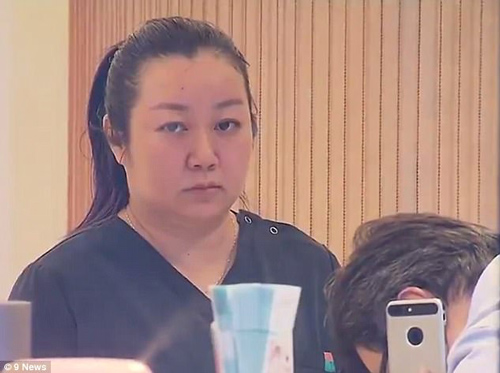
DON’T GO OUT OF YOUR DEPTH
Dr Russell Knudsen, speaking on behalf of the Australasian College of Cosmetic Surgery (ACCS), said the organisation has long warned that beauty salons are out of their depth when it comes to providing cosmetic injections like anti-wrinkle injections and dermal fillers.
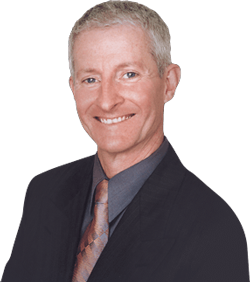
“In the unlikely event of an adverse reaction, you have to have medical-grade resuscitation equipment available immediately and that’s not going to happen in a beauty salon,” Dr Knudsen said.
“If they are being done in a non-medical setting like a beauty salon or a so-called Botox party that we hear about, that is completely unacceptable.”
Dr Knudsen said any beauty salon that has hired a cosmetic nurse must ensure a registered doctor is involved in the consultation process.
“It may be breaching the law depending on the contact between the patient and the doctor who is the person responsible for the prescribing of the medication,” he said.
“There are always risks you need a comprehensive medical history of the patient to make sure they are not going to react or be aggravated.
“We fully support any regulations that enhance standards.”
In 2014, a nurse who administered an anti-wrinkle injection without a prescription or medical supervision had her licence suspended for three months.
About 1,000 beauty salons offer cosmetic injections like Botox around Australia in an industry worth $1 billion per year, according to Tina Viney from the Aesthetics Practitioners Advisory Network.
Ms Viney said salon owners have a duty of care to carefully check the credentials of anyone injecting government-regulated substances.
“If a therapist would like to introduce an injector, they [should be] either a doctor with experience or training in that area or registered nurse that has qualifications in injecting,” she said.
NEED FOR ENFORCEMENTS

According to Dr Danae Lim, a practitioner with 12 years’ experience in both emergency and cosmetic medicine: “It is actually not the lack of regulation of the cosmetic medicine industry, but the lack of enforcement due to due to jurisdiction limitations.”
Dr Lim runs the HD Cosmetic Clinic, a “leading provider of cutting edge non-surgical anti-ageing treatments” in Sydney’s Alexandria that focuses on Asian aesthetics.
“Legitimate providers will always comply with regulations, going above and beyond to make sure patients are safe,” says Dr Lim.
“AHPRA can only regulate medical practitioners and lack jurisdiction over non-medical personnel.
“Only when a criminal offence is committed do the police step in, by which time it is already too late. The illegal sale of restricted medications over the internet has been unbridled for some time, not to mention blatant advertising of overseas doctors as qualified medical specialists performing procedures in many beauty establishments, but is extremely difficult to investigate and prosecute.
“It is not likely that any Australian registered medical practitioner would have made the same mistake [as in Jean Huang’s case].
“Tramadol for human use generally comes in 50-100mg vials. To administer 1.5g would have required 15-30 vials of medication depending on formulation.
“The usual dose is 50-100 mg and it is not a common drug used intravenously, especially not for pre-operative pain relief. It is neither the drug of choice nor correct way to dose it.
“Due to the growth of the cosmetic medicine industry over the last five years or so, many have tried to ride the wave, including an exponential growth in the illegal practitioners with an epicentre mostly in the [Sydney] inner city areas in the past 2-3 years.
“Some of the illegal home practices are now so popular, one actually has a `clinic’ in the retail area now.
“While there are a few clinics with Australian registered doctors in those districts, most of these use illegal practitioners, or have cosmetic nurses claiming to be `specialists’ and operate without a supervising doctor.
“Some perform procedures nurses are not authorised to perform at all, and do home or hotel visits. So there is a mix of the illegals and legals doing illegal procedures.
“Even legal practitioners over-treat in order to make a quick buck, but that’s not relevant in this particular case.
“There are wholesalers advertising fake drugs with the exact same packaging as the legitimate medications, origin unknown, and people have started home businesses doing cosmetic injections and surgery, with very aggressive advertising on Wechat, which does not offer the kind of robust monitoring system or controls that would make accountability less challenging.
“Shut one down and then it registers with another handle, re-establishes business very quickly due to the demand. It is very hush-hush: only people referred by people they know can enter those circles.

“Under Australian law, as long as there is no misrepresentation and the patient has fully consented, anyone can undergo any procedure by any practitioner.
“The onus is on the patient to prove misrepresentation, which is why the NSW Health Care Complaints Commission has been powerless to punish illegal practitioners and no one has died until now.
“Until a criminal act is committed, the police cannot step in. There is a gap in the legislation and jurisdiction.
“Increasing the regulations for legitimate providers may not achieve much as we will always comply – accreditation of facilities, resuscitation equipment, continuing medical education – we already do most if not all of these. What of the illegals or rogue operators?
“Years ago, any business attempting to get registered as a clinic needed to show the AHPRA registration of the doctor in charge.
“Now any person can register a clinic as a business. Off-site supervision using teleconferencing without the doctor ever examining the patient is accepted, so who physically takes charge of a resuscitation if something untoward happens?
“I am personally from an emergency background and so I am fully trained in advanced cardiac and life support.”
NEED FOR MORE PUBLIC EDUCATION
Because they are now so commonplace, many people either do not understand, or they underestimate the ramifications non-surgical treatments such as anti-wrinkle and dermal filler injections (and associated medicines used with them) can have, and especially in the hands of untrained, unqualified, unregistered, unethical or otherwise inexperienced clinicians [SPA+CLINIC is not making this statement in reference to the matter before the courts].
The fact is, anti-wrinkle and dermal filler formulations are literally regarded as poisons.
They are prescription medicines and should only be administered by a qualified, registered doctor or a specialist nurse practitioner who has prescribing rights under a doctor’s auspices.
Many medical products used in cosmetic procedures, such as botulinum toxin (eg. Botox), collagen, hyaluronic acid (eg. Juvederm, Restylane), other non-permanent fillers and lignocaine (local anaesthetic), are classified in the Poisons Schedule as S4 drugs.
Their use is controlled in NSW by the Poisons and Therapeutic Goods Act (1966) in order to protect the health and welfare of the community.
Cosmetic treatments involving skin penetration are regulated with NSW Health monitoring clinic standards.
The website of the Medi Beauty clinic, of which the late Ms Huang was manager and where her ultimately fatal procedure was performed, states: “All of our treatments and equipment meet the highest industry standards and conform to all required legislation. All treatment facilities, materials, resources and products meet the stringent requirements of the Therapeutic Goods Administration (TGA) and Medicines Australia.”
The TGA regulates the supply, import, export, manufacturing and advertising of therapeutic goods. It does not regulate cosmetics. Medicines Australia is an industry group representing pharmaceutical companies.
Medicines Australia released a statement last week saying it had no association with the Medi Beauty clinic.
“First and foremost, Medicines Australia hopes that the customer makes a full and quick recovery,” the statement read.
“Medicines Australia in no way regulates or has any association with the operators of the Medi Beauty clinic or any medical clinic operating in Australia.
“We encourage all Australians to seek the advice of a qualified medical professional when considering taking a medicine or undergoing a medical procedure.
“Medicines Australia is considering what action it should take in relation to the misuse of its company name.”
Dr Cath Porter says that, whatever the circumstances of the incident and outcome of court proceedings, it serves as a timely reminder of the seriousness of these cosmetic procedures.
Also, that it is the responsibility of ethical cosmetic medical and aesthetics professionals to reinforce this to their patients/clients and uphold all standards for their safety and wellbeing.
“It is shocking what has happened and my heart goes out to [Jean Huang’s] family,” says Dr Porter.
“This is a worst nightmare scenario in cosmetic medical terms. I am not aware of the circumstances of this particular case but, generally speaking, S4 medications must be prescribed by doctor and medical back-up should be available, no matter how minor the procedure may be. It shows just how terribly wrong things can go.”
If your salon, spa or clinic doesn’t offer injectable services to clients but you know they are considering having these procedures, you will gain even more trust and respect by guiding them as to what they should be looking out for.
“Suggest to your clients that they check with medical colleges such as the ACCS, ACAM or CPCA as to the qualifications of the practitioner they are thinking of visiting,” says Dr Porter.
“When they do present for an appointment they should expect a thorough consultation as to their aesthetic concerns and desires and a health assessment re their suitability as a candidate before anything is performed.
“They have a right to ask the practitioner what their qualifications are, and how much training/experience they have had as a cosmetic injector. Also, what products are being used, to ensure they are TGA-approved.”
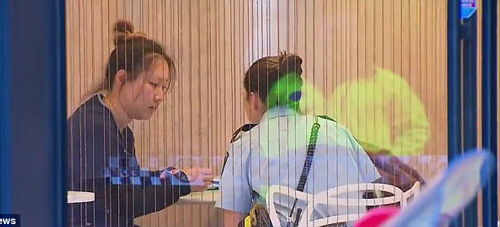
Practitioners must also be able to show evidence of informed consent.
Dr Porter stresses that price (as in the cheapest) should never be an overriding factor when deciding who to choose as an injector. Suspiciously cheap offers may be just that – suspicious.
It may indicate that the products being offered are illicitly obtained (likely online) with no proof of the safety or efficacy of their ingredients and/or the treatments are being performed by “unprofessionals”.
“It’s no good having a beautiful face on a dead body,” quips Dr Porter.
If your aesthetics business is considering employing the services of a cosmetic injector, Dr Porter urges you to ensure that injector is not only qualified and highly experienced in the art of cosmetic injecting but registered in Australia.
“Remember an event like the one in court today is a disaster all round. Most of all for the person who has suffered the medical incident, but then legally/financially for the business at stake and a devastating loss of reputation that could spell the end of that business, even if they are ultimately not found at fault.
“Always remember that you as salon, spa and clinic owners are liable, as well as the clinician who has performed the treatment.
“When you are providing these services you are completely responsible for a patient’s/client’s health. I always call to mind the most basic premise I was taught as a student doctor: `Do no harm’.
“When a patient sees a registered practitioner they know they are receiving care from someone who is appropriately trained and held to account to national standards.
“If you see someone who is not registered, you just don’t know what you’re getting.
“From my point of view [people risking procedures with `backyard’ operators] is absolutely crazy behaviour.
“They are playing Russian roulette and taking huge risks with their health and even lives. They have a much higher chance of experiencing complications that may have longterm consequences.”




